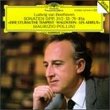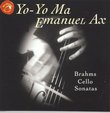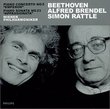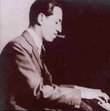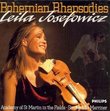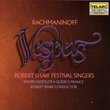| All Artists: Ludwig van Beethoven, Leonard Bernstein, Berlin Radio Symphony Chorus, Berliner Rundfunksinfonie chor, Dresden Staatskapelle, New York Philharmonic, Sarah Walker, St.Petersburg Kirov Orchestra, London Symphony Orchestra, Paris Orchestra, June Anderson, Klaus Konig Title: Ode to Freedom: Bernstein in Berlin Members Wishing: 0 Total Copies: 1 Label: Deutsche Grammophon Release Date: 3/1/1990 Genre: Classical Styles: Historical Periods, Classical (c.1770-1830), Symphonies Number of Discs: 1 SwapaCD Credits: 1 UPC: 028942986121 |
Search - Ludwig van Beethoven, Leonard Bernstein, Berlin Radio Symphony Chorus :: Ode to Freedom: Bernstein in Berlin
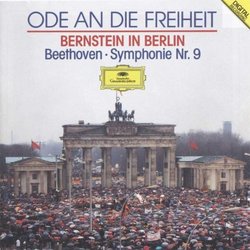 | Ludwig van Beethoven, Leonard Bernstein, Berlin Radio Symphony Chorus Ode to Freedom: Bernstein in Berlin Genre: Classical
![header=[] body=[This CD is available to be requested as disc only.]](/images/attributes/disc.png?v=430e6b0a) ![header=[] body=[This CD is available to be requested with the disc and back insert.]](/images/attributes/disc_back.png?v=430e6b0a) ![header=[] body=[This CD is available to be requested with the disc and front insert.]](/images/attributes/disc_front.png?v=430e6b0a) ![header=[] body=[This CD is available to be requested with the disc, front and back inserts.]](/images/attributes/disc_front_back.png?v=430e6b0a) |
Larger Image |
CD DetailsSimilar CDsSimilarly Requested CDs
|
CD ReviewsUnusually remarkable for its conditions. Yi-Peng | Singapore | 05/30/2002 (4 out of 5 stars) "Once in a while, there comes a performance of Beethoven's mammoth symphonic swansong where the circumstances under which it was made allow the music to speak for itself with more emotion. This fine Bernstein recording is one such example. Recorded after the fall of the Berlin Wall, it allows the music to speak up for itself. In some ways, this performance resembles the classic Furtwangler-Bayereuth recording, from the interpretative details to the circumstances of its "occurence." Bernstein elicits some fine playing from the coalition orchestra, even despite flaccid ensemble at times and some idiyosyncratic conducting. In performances like these, he is able to generate a lot of spontaniety and electricity, and the DG engineers have risen to the challenge of producing fine and atmospheric recorded sound that is not always clear in detail.Bernstein's first movement is slower in comparison to his earlier DG version in Vienna, and it harks back to Furtwangler. The movement is allowed to build up intenseley with a keen conveyance of a sense of struggle, and all the various strands of the argumentative thread woven together into a dramatic whole. Drama still remains in the second movement, which has rythmic spring and a forward-moving impetus that steers the music along. The trio has an Olympian feel to it, just like the sublime third movement, which is played with a hushed intensity at the beginning, until the temperature of the music picks up towards the end.The fourth movement may have some coarse and rough points to it, which can be seen a little in the cello and double-bass recitative. When the Joy Theme is introduced, it is slower than we are used to hearing it. However, there are some even more striking details when the soloists enter. The bass soloist Jan-Hendrik Rootering really makes a powerful impact with his opening solo, and even makes striking use of the word Freihit (freedom) instead of Freude (joy.) He is the best soloist of all the four soloists who sing in this performance. Of the other soloists, Sarah Walker has a firm, commanding alto voice, but the higher soloists don't seem to fare better. June Andersen has a someaht peaky-sounding voice, and Klaus Konig in particular has a rough and hoarse tenor sound. This is especially noticeable in the drum-and-fife march passage. Though the soloists may not sound good individually, they seem to gell well together as a group. However, the firm, convicting choral contributions can more than make up for it, as the three choirs sing with fervour, and the immediacy of the recording gives the choral sound a bright and immediate quality. This movement, when performed here, is really a thrilling performance, because of the electricity it conveys. And it is enough to cap a superb performance that conveys a sense of occasion throughout, especially at a poignant time.On the whole, I find this recording of the Ninth good for supplementary listening. It would be a fine recording for beginners to investigate, but I find this more of a supplementary disc. The flaws in the quality of the recording may not be that serious, but Bernstein manages to convey spontaniety to make this performance sound electric and compelling. Yet this is one of those wonderful performances of the Ninth which, along with Karajan, Gardiner, Szell, Abbado and others, can take its place near the top of the list of recommended readings." Beethoven's Ninth for specialized tastes David Mente | Pittsburgh, PA | 04/16/2002 (4 out of 5 stars) "If you already have multiple copies of this symphony and want something interesting and unusual, you should give this performance some consideration. This was a performance celebrating the fall of the Berlin Wall. There is a real sense of occassion about it. The Bavarian Radio Symphony is the "base" orchestra (a West German Orchestra at the time), members of orchestras from the US, England, France, East Germany and Russia also joined in. This does lead to some raggedness, I believe. Bernstein also substitutes the word Freiheit (freedom) for Freude (Joy) for this performance. I felt that actually worked well and was probably quite moving for those present. This is a late Bernstein performance and thus has extremely slow tempos compared to the norm for this piece. If you are looking for a first recording of this symphony, there are better places to start (Szell, Klemperer, Karajan, Giulini's budget recording). If you are looking for Bernstein doing the Ninth, his Vienna Philharmonic recording is a great performance, more mainstream than this one. However, if you are looking to explore some of the other possibilities that this piece of music presents, this is a great choice for you." I will only listen to this work in private Mark Sethre | San Jose, CA | 08/18/2006 (5 out of 5 stars) "For years, when I listened to the 9th, I would play the 1st and 2nd movements
and then skip to the finale. I enjoy crisp, energetic and powerful music and the 9th has it in unsurpassed measure. And this rendition provides just that. I haven't listened to all the great performances of the 9th, but I've listened to quite a few, and this is my favorite. This is the version I compare all the subsequent ones I've listened to. I've heard better 4th mvts., but this one is very near to the best. The first two movts. are done competantly and do not disappoint. If the skills of the orchestra and recording quality were to be the same....the time alotted the conductor, that he has to rehearse a work with his players, determines it's ultimate success. I believe that Bernstein had a good amount of time to communicate his interpretation to this orchestra. And Lord knows there was high motivation by all concerned in the project. Bernstein's interpretation of Beethoven's 3rd movt., the adagio molto e cantabile, is by far the finest I've ever experienced. The emotional groundwork is laid and the peak and resolution are sublime. I know I'm going to fight back the tears, if I'm allowed to listen this 3rd movt without distraction. If you ever get the opportunity to purchase the video tape of this concert, do by all means buy it. Oddly, the audio recording, alone, does not contain the full emotional impact of the performance. However the audio CD is a "must have". But, the full effect of the live performance in the video tape with both audio and visual is truly magnificant. I'm not going to attempt to describe it here. Why it's not reprinted for more to experience is a sad business. People don't know what they're missing. I allow myself to view my copy but seldom. I dare not watch it too many times. " |

 Track Listings (4) - Disc #1
Track Listings (4) - Disc #1